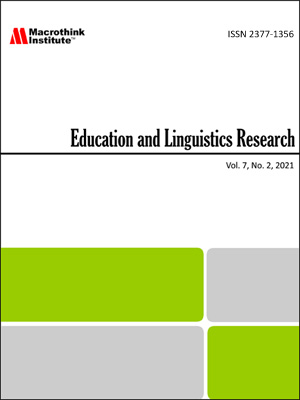Cognitive Analysis of “Fog” Metaphor in Poetry of the Tang Dynasty
DOI:
https://doi.org/10.5296/elr.v10i1.21716Abstract
In the cognitive linguistic view, metaphor is not only a linguistic device but also a mode of thinking that people use to conceptualize and comprehend the world. Cconceptual metaphors are a set of mappings from a concrete source domain from an abstract target domain. The cognitive foundation of conceptual metaphor is a variety of human experience. Poetry of the Tang Dynasty abounds with metaphorical images. Fog is a regularly used image in poetry of the Tang Dynasty. Yet the research on fog from the perspective of conceptual metaphor remains as an under-explored area. Based on conceptual metaphor theory, the current research aims to sort out the classification of fog metaphors and the cognitive foundation as well as cultural motivation behind those fog metaphors in poetry of the Tang Dynasty. The cognitive analysis of fog can offer a new dimension to the exploration of both the image of fog and metaphor in poetry of the Tang Dynasty. In addition, the cognitive approach to fog metaphor in poetry of the Tang Dynasty can better reflect the unique cultural cognition of ancient China, and extend the research on classical Chinese poetry, which is a step forward in cognitive poetics, and offer implications for the appreciation, translation and teaching of poetry of the Tang Dynasty.

